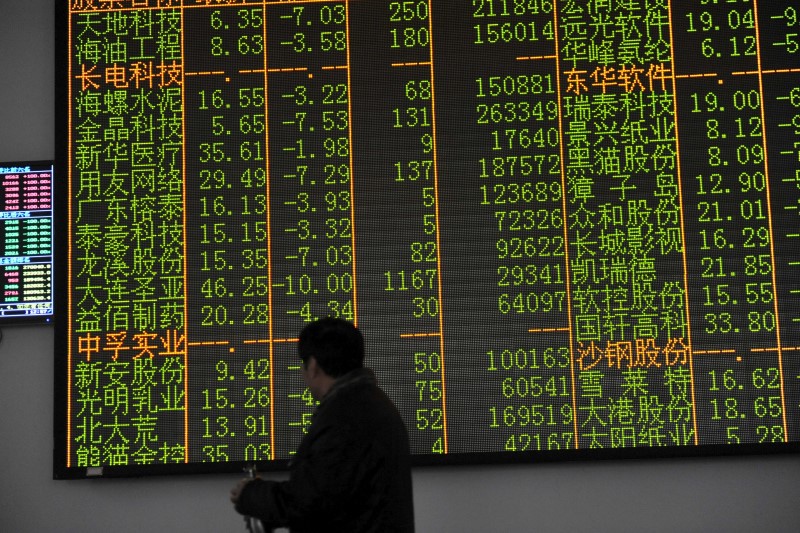By Jemima Kelly
LONDON (Reuters) - Global shares tumbled for a sixth day on Thursday and oil prices slid to levels not seen since the early 2000s, after China guided the yuan lower and Shanghai shares tumbled 7 percent (CSI300) in less than half an hour.
For the second time this week, China suspended trading in its stocks, whose losses since a turbulent start to the year have topped 10 percent. Oil prices have plunged 12 percent since Tuesday - the worst three-day run in a year.
Brent crude skidded over 5 percent on Thursday alone to an almost-12-year-low (LCOc1), with worries over weaker demand from China adding to a persistent price drag caused by a huge oversupply and near-record output levels.
Wall Street was expected to open more than 2 percent lower (ESc1) (1YMc1), following European stock markets deep into the red. The pan-European FTSEurofirst 300 index (FTEU3) and the euro zone's blue-chip Euro STOXX index (STOXX50E) both tumbled over 3 percent.
Even before U.S. shares began trading, MCSI's 46-country All World index <.WORLD> fell 1 percent to hit a three-month low, the sixth straight day of losses.
"When you look at the size of the moves there is certainly a big big wave of risk off," said Vasileios Gkionakis, Global Head of FX Strategy at UniCredit in London. "You are looking at Chinese equities and oil down almost 12 percent in the first four trading days of the year which is pretty chunky, and my worry is that this could create a feedback loop which hits sentiment."
Investors remain concerned that China is struggling to keep control of the yuan.
The People's Bank of China (PBOC) set the yuan midpoint rate
The benchmark emerging stock index (MSCIEF) slid 2.5 percent to a 6 1/2-year low as investors dumped risky assets.
Spot yuan
Other regional currencies followed the yuan down as markets began to worry about competitive currency devaluations from trading partners. Singapore's dollar
Investors fear China's economy is even weaker than had been imagined, with Beijing, in a bid to help exporters, allowing the yuan's depreciation to accelerate.
"The lower yuan fixing probably signifies greater risks to the Chinese economy than we know of," said Jeremy Stretch, head of currency strategy at CIBC World Markets.
FLIGHT TO SAFETY
North Korea's announcement on Wednesday that it had successfully conducted a test of a hydrogen nuclear device added to a growing list of geopolitical worries for investors.
"Geopolitical tensions stemming from Saudi-Iran tensions and North Korea's nuclear test had already heightened the 'risk off' mood," said Takashi Hiroki, chief strategist at Monex Securities in Tokyo. "Resurfacing China risk was the extra psychological blow to the markets that led to the selloff in equities."
As investors fled to safety, the yen rose about 1 percent to 117.33 per dollar
Top-rated German bonds, which are also considered a safe haven, benefited, too. Ten-year yields dropped to a one-month low under 0.50 percent.
Earlier, MSCI's broadest index of Asia-Pacific shares outside Japan (MIAPJ0000PUS) dropped 2 percent to its lowest since late September.
New rules Chinese authorities introduced this week that restrict selling by large shareholders did not go down well with investors and provided little tonic to jittery markets.

"This is crazy. Chinese regulators set off on this path in July and they cannot get out of it. They have ruined whatever hope investors still had in the market," said Alberto Forchielli, founder of Mandarin Capital Partners in Hong Kong.